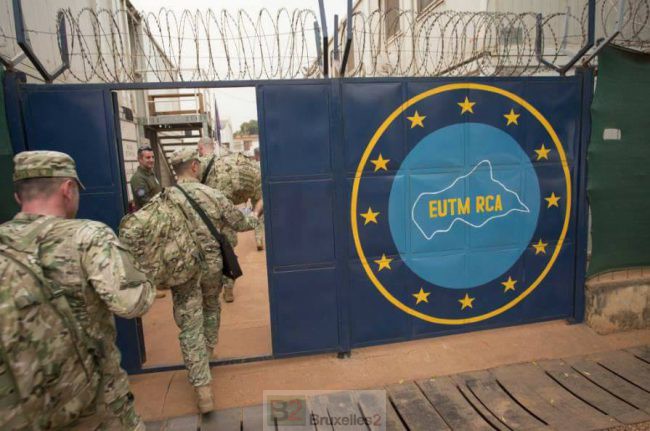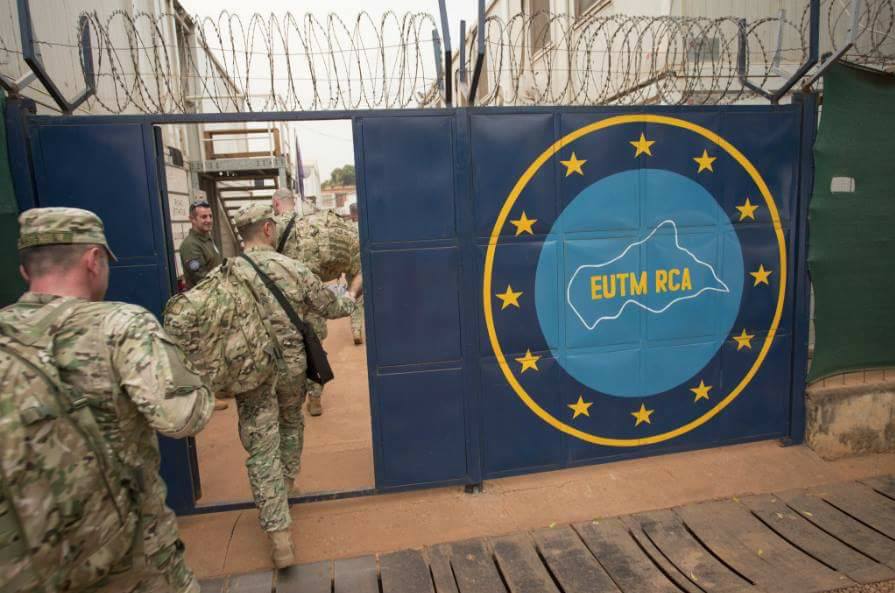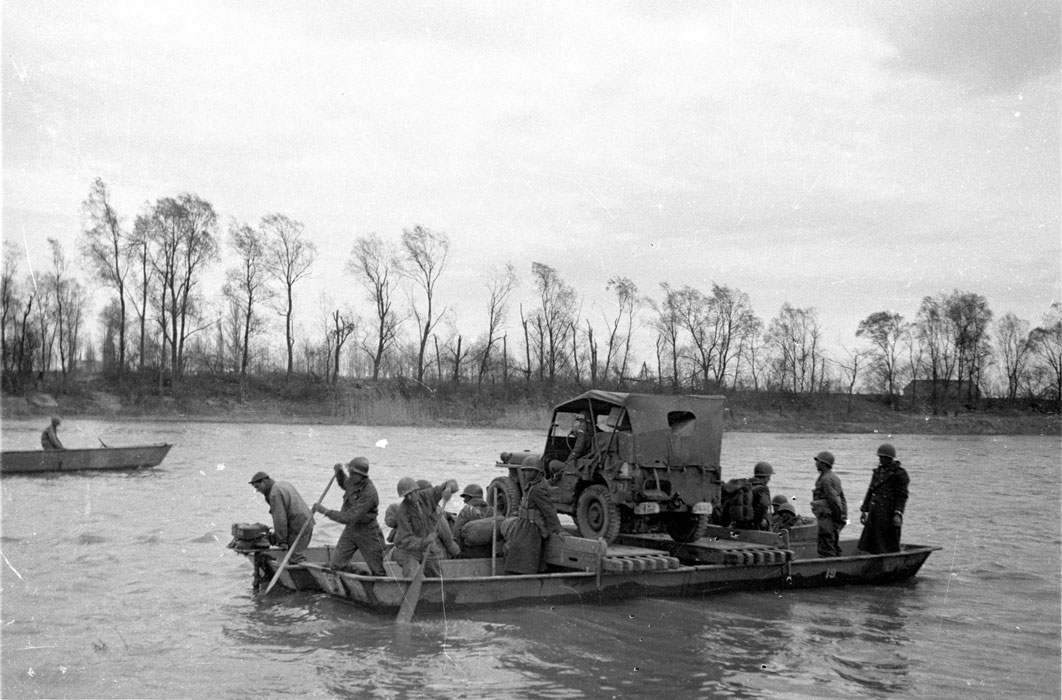A mini HQ for EU missions. To do what ?

(B2 - exclusive) The Europeans should approve, this Monday (6 March), the creation of a permanent mini-HQ. In European jargon, it is called "MPCC" as " Military Planning and Conduct Capability ". This structure will be responsible for preparing ("planning") and ordering ("conducting") the non-executive military missions of the European Union, "at the strategic level". That is to say at the political level.
How many missions are involved?
The European Union has three "non-executive" missions, all in Africa and which concern the training of local soldiers: in Somalia (EUTM Somalia), in Mali (EUTM Mali), in the Central African Republic (EUTM RCA). Each of these missions brings together around 200 people (a little more for EUTM Mali). In total, it will be approximately 7-800 soldiers who will be attached to this new operation commander.
Why do we need an operation commander in Brussels?
Until today, the (non-executive) missions that the European Union deploys on the ground have a head of mission, who provides day-to-day command, but the operation commander, as such, who plans for the longer term, liaises with political authorities, etc. It is the same head of mission who leaves the field and reports to the political authorities. Which is quite absurd.
Why is this aberrant?
B2 asked for their opinion from several CSDP specialists, mission commanders, diplomats, officials in the various staffs. All confirmed. The current system does not work..." European structures are very specific – explains a European soldier –. You have to know them concretely, practice them every day. Between the European Commission, the Parliament, the COPS, the budgetary procedures, calls for tenders, the various national diplomacies... this requires learning which cannot be done in a few months. [...] To ask a national soldier to apprehend these structures, to be at the same time in Mogadishu or Bamako and in Brussels, to command the force on the ground and to know all the corners of Brussels, it is impossible . »
It's even totally absurd, swears another. " It doesn't exist anywhere. In all our military arrangements, we have a tactical level (the terrain, the force, the mission) and a strategic level (reflection, politics, operation)” (2) explains a senior officer. " In the European Union, there is no one between the tactical level and the ministers or the ambassadors. [...] It's like having a commanding general of the ISAF in Afghanistan, who would call the Council of Ministers on every problem, however minor. »
A diplomat confirms. " Mission commanders have so far no military interlocutor to contact in Brussels. They could address the Political and Security Committee as a political referent. But it is not really the role of PSC ambassadors to be able to answer all the questions, on a daily basis, that a military commander asks himself. You need a soldier for that »
Lire: The conduct of operations: a missing piece of the EU system... among others
These are non-executive missions... where is the danger then?
Paradoxically enough, the EU's non-executive missions are today more exposed than military operations. The first ones take place in areas that are rated higher than lower risk: Mogadishu for EUTM Somalia, Bamako in Mali, Bangui in the CAR... Alongside the military operations in Sarajevo, or in the Indian Ocean, and even in the Mediterranean, facing Libya, are a walk in the park, or at least present a lower risk (3).
Have there ever been serious problems?
It failed. A year ago, during the terrorist attack against the EUTM mission, in the spring of 2016. The commander of the EUTM Mali mission was then in Brussels meeting parliamentarians and ambassadors at the time of the attack...
Is there duplication with NATO?
NO WAY. All those who claim that are either people who refuse that the EU has the means of its ambitions, or ignoramuses. 1° NATO is not the same organization as the EU; it does not have the same political structure, the same chain of command, nor the same members (4). 2° This would suppose having the agreement of all the members of NATO (which is far from being won, cf. in particular the Turkish-Cypriot problem). 3° The presence of NATO in certain countries is not really desired either by the local countries or even by the Allies (for EUTM Somalia, the United States for example worked very effectively with the Europeans). 4° Even from a technical point of view, to command this type of mission, there is no need for a device like SHAPE (the permanent NATO HQ located in Mons). It would be unsuitable, oversized and too heavy to command three missions that bring together 600 people in all. 5° NATO soldiers do not really know the refinements of the European Union, its structures, etc. In conclusion, to do with NATO would be more difficult, partly useless and much more expensive.
Read also: Don't touch my Shape! The false argument of duplication
How long have we been talking about this ability?
Ooh YES! The first time an autonomous capacity for the European Union was mentioned was in December 1998, in Saint Malo, the French (J. Chirac and L. Jospin) and the British (T. Blair) came to an agreement, in a joint declaration on a necessity: the European Union must have autonomous capacity for action », pressed on « credible military forces "," with the means to use them » and being « prepared to do so in order to respond to international crises ».
“It is important to have the capacities as well as the political leadership in Europe to be able to assume its responsibilities, especially in circumstances where for one reason or another the United States does not want to commit” (Tony Blair, December 4, 1998 )
Why was this never implemented?
Quite simply because any decision in foreign (and defense) matters in the European Union is taken unanimously. Several attempts have been made: from the most famous (and perhaps the most clumsy), in the midst of American-British intervention in Iraq (the famous Pralines summit in 2003), to the most recent and most discreet (in 2011- 2012, which could only lead to a half-measure, ineffective, the operations center). With every attempt to realize this call to implement, in a concrete and practical way, there has always been a strong British 'No'. Sometimes this was not expressed publicly ... because another country took over (Lithuania, for example, played the role of a British submarine for a time).
What led to an agreement?
Undoubtedly, the British referendum on Brexit played a significant role in erasing the British veto. The international situation too, the multiplication of threats, the coup d'etat in Turkey which is making this ally weaker, are forcing the Europeans to be more autonomous. But internal reasons also came into play (see above).
Does this decision have everyone's approval, including at the highest level?
Yes... if you have read the conclusions of the meeting of EU Defense Ministers last November, and even more so that of the European summit of last December 15, it was written in black and white. The Heads of State and Government had thus recommended " the establishment of a permanent operational capacity for planning and conduct at the strategic level ».
And a HQ for military operations?
It's not for tomorrow... but for the day after tomorrow. The idea of a permanent HQ for military operations – defended by France and several other countries (Spain, Italy, etc.) – has not been abandoned. It is postponed until later. An assessment of the implementation of the MPCC is thus planned “ no later than the end of 2018 ". The objective would then be to be able to move on to the next stage, the command of operations… more than twenty after the Saint-Malo meeting in December 1998.
(Nicolas Gros-Verheyde)
Concretely, who will command the missions?
It is the Director of the EU Military Staff – General Esa Pulkkinen – who is promoted to Director of the MPCC and will in this capacity exercise the functions of Mission Commander, at the strategic level.
Why a director not an operations commander?
It's a (small) concession to the British. During the discussion, the United Kingdom objected to the future head of the new structure receiving the name "operation commander" preferring the term "director of the MPCC". On arrival, it does not change ... nothing.
When will all this be activated?
Official answer: “in the spring”. We asked when was spring? “from March 21 to June 21”. According to our main polls, this MPCC could be declared operational by the end of April (for the informal meeting of defense ministers), which is very short, or in May (early June at the latest).
Why not right away?
BECAUSE... The green light from ministers is purely political. There is still a whole lot of formatting work to be done: accurately transcribing the entire new chain of command, reviewing in particular the decision setting the tasks of the general staff, which has never been reviewed since the entry into force the Treaty of Lisbon (1); also review the three decisions on which EU training missions are based, as well as all internal documents (military concepts, crisis management concepts) which mention this chain of command. This work has already begun – according to our indications –.
How much will this MPCC cost?
NOT MUCH. The MPCC was created within the already existing EU headquarters, located not far from the Schuman roundabout. No need for premises, or even additional technical means. The operation commander himself is not new, it is the current director of the staff who will have a “double hat”.
How many people will this MPCC have?
NOT A LOT. In all, this MPCC will have between 20 and 30 people. Most in fact represent post redeployments: officers already present in the EU headquarters and in the former operations center (OpCen). 5 or 6 could come from Member States as reinforcements.
What will this MPCC be used for?
It will first liaise between the political authorities and the field, and vice versa, from the most important to the most minor. This includes responding to changes in the situation on the ground, in terms of security, finding reinforcements or additional resources, assuming the renewal of forces on the ground (generation of additional forces), answering questions from parliamentarians or ambassadors of the Member States, or even to fulfill the obligations in terms of calls for tenders or accounts. Etc.
Aren't these questions already answered in the operation plans and other internal planning documents?
A certain number of questions are planned in advance, and appear both in the plan of operation and in the rules of engagement. But if a unit training foreign soldiers detects within it doubtful elements, close to terrorist movements, or that there is a problem of indiscipline among them or in the European workforce, what should be done? A very simple question to solve when the soldier is low in rank, when it is a senior officer, especially if he is close to the local political level (or he is supported by his Member State), it becomes a question very political... Ditto when it comes to providing for undetected needs (training, logistics, security).
(NGV)
(1) A non-executive mission is a mission carried out by the EU without exercising sovereign functions in the country concerned (maintenance of order, control of public roads, interception of troublemakers, protection of the population, shots to neutralize "adversaries", etc.) which, in the current international order, can only be authorized by a resolution of the United Nations Security Council (under chapter VII).
(2) The first is called Force HQ, the second Operation HQ. Which is confusing...
(3) The deployment of ships in itself carries a dose of self-protection that a land deployment does not. As for Sarajevo...no comment.
(4) Contrary to what is often said, the difference is noticeable. It is not so much the number of countries (which are not part of one or the other organization), it is their importance. The following are notably not members of the EU: the United States, Canada, Turkey and Norway, etc. (i.e. in terms of military importance, a clear majority).
Details: The MPCC to conduct military missions. Composition, Function, Command…


